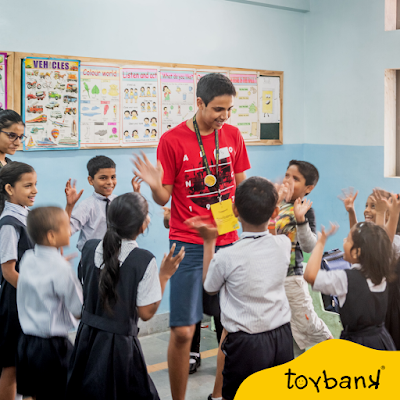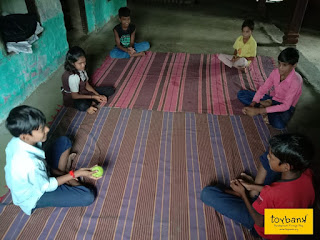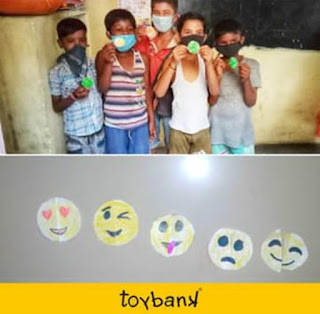5 games to build empathy in children
Empathy is an important life skill that must be inculcated in children early on. Thus, fostering it finds an important spot at Toybank Play2Learn Sessions.
Interacting with others through Play is known to be among the most effective ways to build social-emotional skills and thus empathy in children.
Toybank here’s a look at games that can make kids more empathetic, as they stay away from peer groups and playspaces during COVID-19.
Emotional Charades
Essentially, this is where a player acts out a certain emotion and the others guess it. This will help children identify emotions that people could go through and make them more considerate and respectful towards others’ feelings.
Passing the Ball Conversation
In this game, players form a circle and the player with the ball will start a conversation. This player will pass the ball to someone else in the circle and the recipient will respond to the conversation with a contribution of their own. Throughout the game, children must make eye-contact with the player they are passing the ball to. This will allow them to be attentive to the person speaking and understand what they are going through.
Story-based discussions about emotions
The children will read a story with some emotional content and talk about it afterwards. For example: Why did the main character get angry? What kinds of things make you get angry? This will help them reflect on the emotions that they feel as well as learn about how people react differently.
Yoga
Not only is Yoga good for physical as well as mental health but it has poses that represent phrases that will help children calm down and manage their emotions in a fun and effective manner. For example: the Warrior Pose is associated with the feeling, 'I am Strong.' Or the Tree Pose that says, ‘I am calm and kind.’
Paper Plate Emotions Masks
Each paper plate will be cut into halves and have a stick at the back. In the front, the children will draw out a face representing a specific emotion, like sadness, happiness, etc. This will help them understand what different feelings look like.
Social-emotional skills are important for children to learn and this can be done by keeping them engaged.
— Zina Colabawalla (Volunteer)





Comments